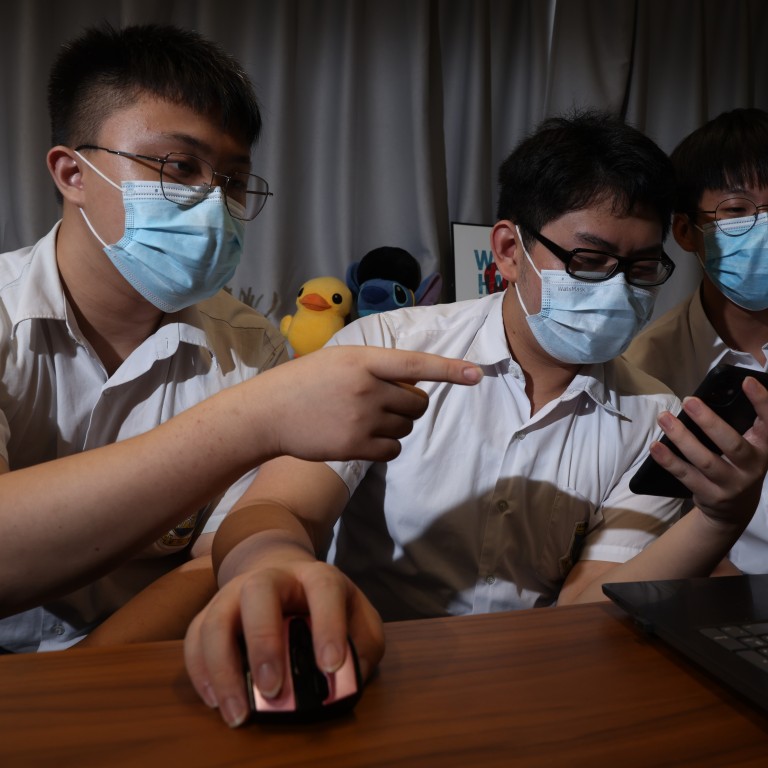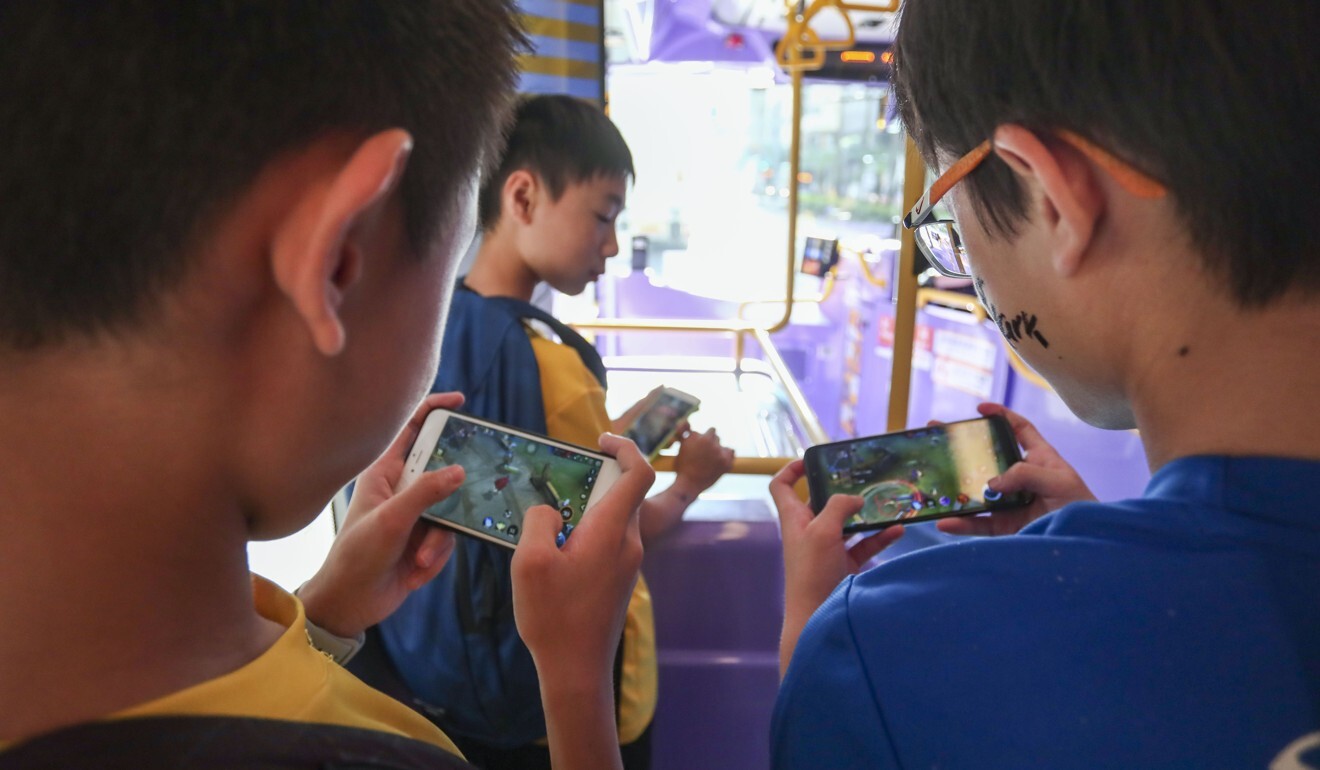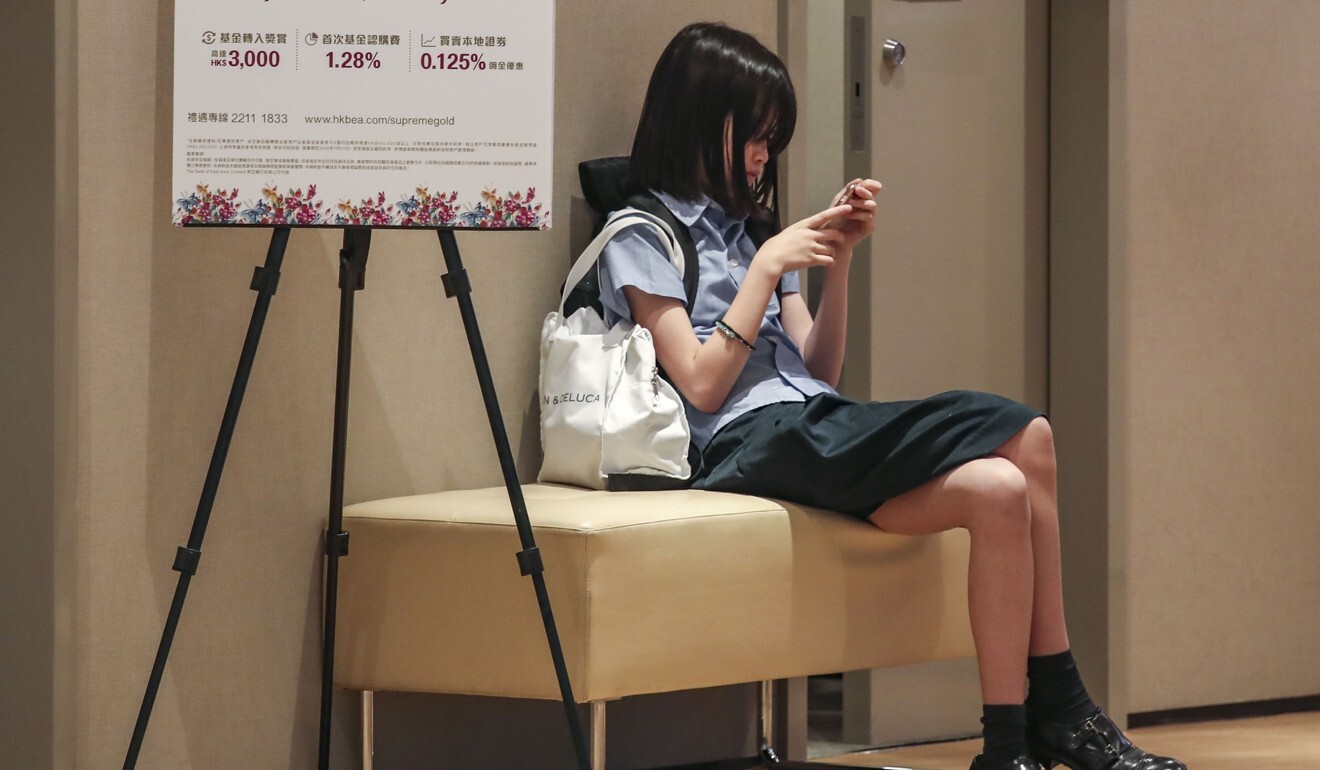
Hong Kong cybercrime: ‘pretty girls and strange uncles’ target youngsters spending more time online during pandemic
- Tech savvy youngsters who socialise, play and study online increasingly know danger signs to look out for
- But with growing reports of online crime, experts say young still need help understanding online threats
Henry Huang Qihao learned a lesson in Form One that he never forgot: beware of strangers you befriend online.
A gamer he met over the internet tricked him into sharing his game account and password, then locked him out and demanded a HK$500 (US$64) ransom.
Although he had more than HK$1,000 worth of in-game purchases, Huang refused to pay up, but did not tell his parents or report to the police.
So when a girl he befriended on a social app in March this year began pestering him for money within a week, Huang, now 17, spotted trouble immediately.
He deleted her contact and dumped the app as well.
“I have learned to be watchful,” says Huang, a Form Five student of Hong Kong Teachers’ Association Lee Heng Kwei Secondary School in Tai Po, who lives with his mother, a 44-year-old restaurant worker, and sister, 21.

Experts say being aware of potential threats can make a difference to young people who are the target of online scams, bullying, sexual harassment and abuse, among other cybercrimes.
The Covid-19 pandemic has increased their vulnerability, as students have been staying home and using the internet more.
The police have warned that juveniles making friends online during the pandemic have been targeted for child pornography and sex crimes.
During the first nine months of last year, there were 85 cases of unlawful sexual intercourse – men having sex with girls under 16 – compared with 71 in the same period in 2019. The youngest victim last year was just 10 years old.
In 38 of the cases last year, predators found their victims online.
There were 15 cases of child pornography, in which victims sent photos exposing themselves to people they met online, up from eight for the same period in 2019. The youngest victim was seven years old.
Although the police did not provide statistics, youngsters were also among the victims of cybercrimes including e-shopping fraud, online romance scams and extortion arising from racy video chats online. Overall, there were 12,916 reports last year, up 55 per cent from 8,322 in 2019.

Internet ‘the least safe environment’
Save the Children Hong Kong, a non-profit organisation and member of the global Save the Children movement, interviewed 1,151 Hong Kong students aged 12 to 17 last July about various aspects of their lives.
It found that one in four never or seldom felt safe online. Those surveyed ranked the internet the least safe environment, compared with their home, school and places they visited in the city.
The survey findings, released in May, found that young people perceived the online community as hostile and full of suspicious activities, and feared losing money to games or e-commerce fraud or falling victim to cyberbullying and sexual harassment.
Most young people have access to digital devices for personal use and use them from an early age to socialise, seek entertainment and study.
More than nine in 10 interviewed had their own mobile phones, and about seven in 10 had their own computers.
Dr Gary Tang Kin-yat, a social science assistant professor at Hang Seng University, who led the survey, says even adults feel insecure online, let alone children.
Many students interviewed had experienced scams, lost money on gaming platforms, or experienced online sexual harassment, among other issues.

Easy target for online scams, bullying
Form Five student Chris Wan Chi-san, 19, has doubled his time online to seven or eight hours a day during the pandemic to study, chat and play games, but says he is aware of the risks.
He recalls what happened to him in Form Two, when he was an avid fan of the popular online battle game Honour of Kings and joined an online group of players to trade information.
One day a player shared a link for a lottery with a much sought-after reward worth thousands of dollars, which enabled players to change the appearance of their game characters.
Tempted, Wan clicked the link and entered his game account and password on a platform that looked identical to the game’s official website.
Soon after, his friends began complaining they were inundated with advertisements for illegal online gambling sent from his social media accounts. He was kicked out of several online chat groups, and his social media accounts were blocked by operators after an influx of complaints.
Young suffer insomnia, difficulty with studies as Covid-19 sparks screen-time surge
Only then did he realise it was an online scam, as his game account had been linked to his social media accounts.
“That incident taught me how dangerous the internet is,” he says.
Chan Ying-kit, who is in charge of the Wellness Mind Centre of the Hong Kong Federation of Youth Groups, the city’s largest youth service organisation, says many online games have in-game transactions, and some students use their parents’ credit cards without permission to pay.
Some overspend, chalking up bills of thousands of dollars a month, he says.
Another major risk is cyberbullying, which is also on the rise during the pandemic.
He says many bullying cases occur in closed online groups, targeting those who are outspoken or break the group’s norms. Some are doxxed, with personal details including their ages, schools and political stances exposed online.
Victims of bullying in real life, including children with special educational needs or those with inadequate social skills, also face the risk of being bullied online.

Boys targeted by online predators too
Both boys and girls are at risk of online sexual harassment and abuse, the experts say.
The Save the Children survey found it was common for them to be approached by suspicious strangers requesting connections on social media sites.
Boys said they came across fake accounts by suspicious people masquerading as beautiful girls trying to connect with them. Girls described being harassed by “strange uncles” who pestered them for nude selfies, sex, or to sell their school uniforms. Some girls reported receiving photos of male genitals.
Donna Wong Chui-ling, director of charitable organisation Against Child Abuse, says perpetrators of child sexual abuse cases are increasingly unrelated to their victims, whom they find online or via their mobile phones.
More than half of Hong Kong students spent more time gaming during coronavirus
She says many online sex predators try to groom children to gain their trust and confidence before abusing them. This trend surfaced in 2018 with the increased use of the internet for studying and entertainment.
But the risks have been greater during the pandemic, she says, as children have been staying at home and spending more time online, while parents have lowered their guard.
Most victims are girls aged 12 to 17 who lack awareness of online risks as well as sex education. Some are trapped while seeking emotional attachments online to make up for dissatisfaction with their lives.
The Save the Children survey found that about two in five young people often or always felt sad and down for long periods over the past year.
“Children are vulnerable online. More needs to be done to protect them from harm,” she says.
Call to make sexual grooming a crime
In a 2016 consultation paper on reforming laws related to sexual offences involving children and persons with mental impairment, the Law Reform Commission of Hong Kong proposed making sexual grooming an offence.
In December 2019, the commission included it among its recommendations for reform of substantive sexual offences under the Crimes Ordinance.
Wong says the reform is important to protect children in today’s online world, and to deter criminals.
She also says she hopes internet service providers can do more to monitor online platforms and protect children from improper information and potential harm.
Gary Wong Chi-him, a non-official member of the Commission on Children, a panel set up by the government in 2018, goes further, urging the authorities to introduce laws to compel the operators to plug the loopholes.
Children should learn to cope with online risks, reject improper online requests, and identify fake accounts to protect themselves
He says the commission has not covered online safety so far, but given current trends, he expects it to do so in future.
Chan, of the Federation of Youth Groups, says schools need to improve the teaching of media and information literacy, an area in which Hong Kong children lag behind those elsewhere, including in South Korea.
“Children should learn to cope with online risks, reject improper online requests, and identify fake accounts to protect themselves,” he says.
Carol Szeto, chief executive of Save the Children Hong Kong, says her organisation has conducted talks in schools over the past two months on issues ranging from online gaming to sexual harassment and privacy, to educate students and raise awareness.
But Hang Seng University’s Tang, who led the survey, sees a silver lining.
He says some of the young people interviewed were aware of their online privacy, and tried to protect their information and social media activities.
Some also used different social media accounts for different audiences to safeguard their personal information while using digital platforms.
“That these children feel unsafe online means they are aware of the risks, and will think of ways to protect themselves,” he says.

